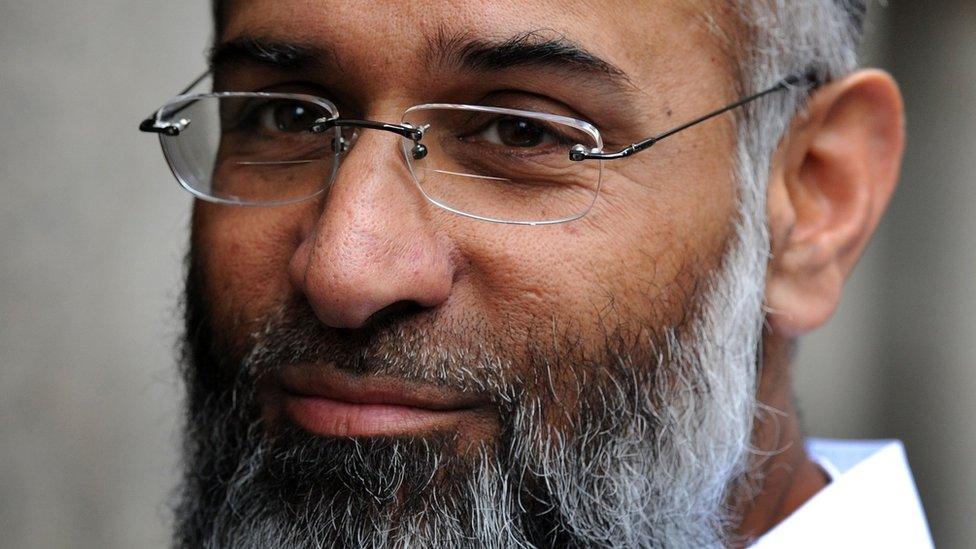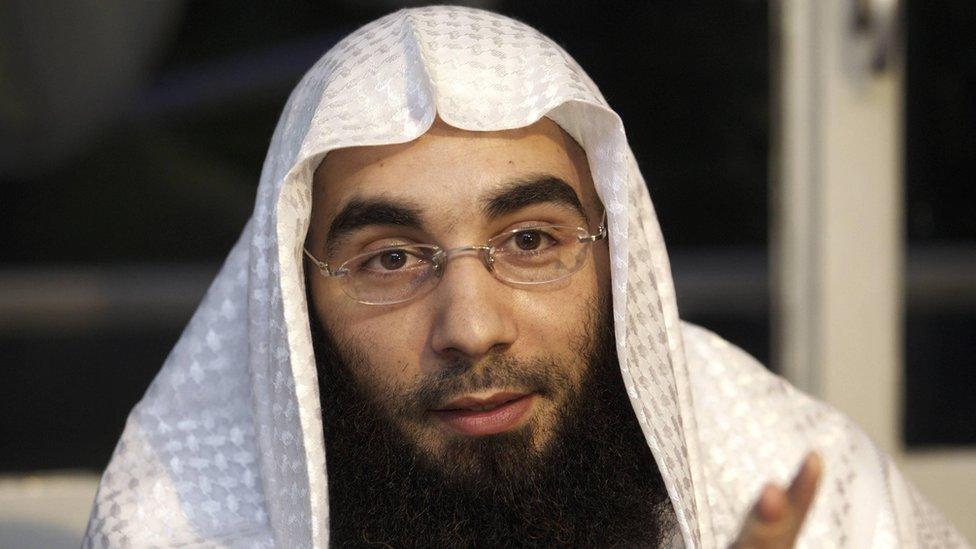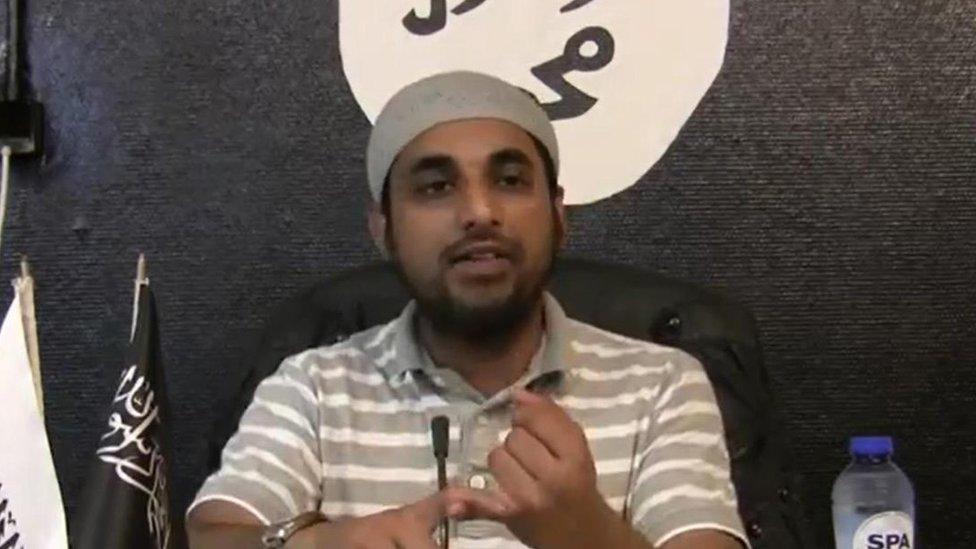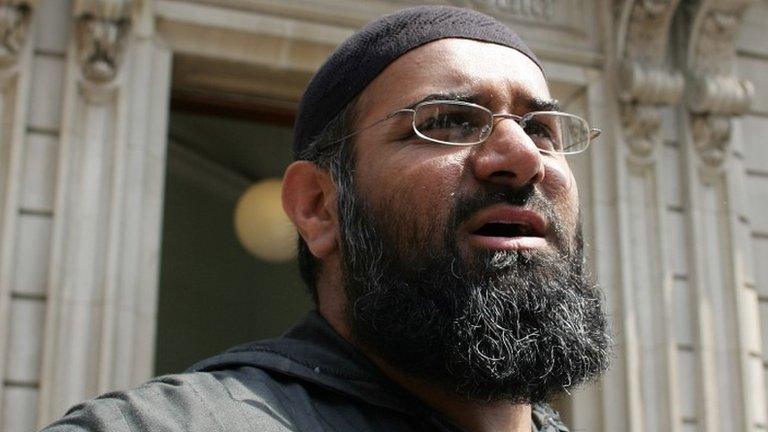Anjem Choudary's links to Belgian extremist group
- Published

Anjem Choudary has been convicted of inviting others to support so-called Islamic State. UK counter-terrorism officers have spent almost 20 years trying to bring Choudary to trial, but he also has links to extremism - and a conviction - in Belgium.
"They are monsters", says Ozana Rodrigues when asked about Belgian extremist group Sharia4Belgium. "They kill, they take other people's lives."
Ozana is the mother of Brian de Mulder, a teenage convert who travelled from Belgium to Syria in 2013. He is now dead.
His mother accuses Sharia4Belgium of radicalising him, and says they "even took him to a camp where they trained teenagers".
Sharia4Belgium has played a significant role in the growth of extremism in Belgium, and it took inspiration from Islam4UK - a group once led by Anjem Choudary.
Pieter Van Ostaeyen, who researches Belgian jihadists, told BBC Radio 4 that Sharia4Belgium founder Fouad Belkacem "clearly pointed to the ideas and ideology of Choudary and Islam4UK".
There are other links between Choudary and Belkacem, a petty criminal and car dealer who was allegedly involved in de Mulder's radicalisation.
The pair were co-defendants in 2012, when a court in the Belgian city of Antwerp found Choudary guilty of inciting discrimination, hatred or violence against a group.
Choudary was not present at the trial and - according to Patrick Charlier of Belgian anti-discrimination body Unia - he was never compelled to serve his sentence, though the judge ordered his immediate arrest.

Fouad Belkacem founded the Sharia4Belgium group
A 2015 trial that convicted 45 Sharia4Belgium members of terror-related offences suggested Choudary was influential in the creation of the organisation.
The judgement notes that in 2010 Belkacem "spent several days in a mosque in London", adding that in the same year Choudary "announced in the media that he was planning to create a new branch of his movement in Belgium".
Two months later, the judgement says, Belkacem co-founded Sharia4Belgium.
In a 2015 New Yorker magazine interview, Choudary claimed Belkacem had visited him in the UK seeking advice.
He said he found Belkacem to be an "incredibly receptive younger brother".
Creating division
Choudary's role appears to have been solely that of mentor and teacher.
One Belgian legal source told the BBC that British authorities should have done more to stop Choudary from spreading extremism.
"We never understood why people like Choudary were left alone," he said.
Choudary and other British extremists travelled to Belgium to meet Sharia4Belgium members.
In one online video produced by Sharia4Belgium in 2012, British extremist Mohammed Mizanur Rahman - who was convicted alongside Choudary in the UK - congratulates the group on creating division within Belgium.
The video, which had been removed from the internet, was given to the BBC by Belgian journalist Guy Van Vlierden.

Mohammed Mizanur Rahman appeared in a Sharia4Belgium video
Sharia4Belgium was under intense surveillance.
Journalist James Harkin, who obtained documents relating to the group, has seen a Belgian police transcript of one phone call between Choudary and Belkacem.
"Fouad Belkacem is asking for the advice of the master Anjem Choudary, so this is very definitely a master-pupil relationship", he says.
Sharia4belgium was disbanded at the end of 2012 and officially outlawed in 2015.
Experts now regard it as a spent force, and Van Ostaeyen says other cells are now more active and more dangerous.
Had Sharia4Belgium been taken more seriously in its early days, Van Ostaeyen and others argue, the story of extremism in Belgium might have been different.
- Published16 August 2016

- Published16 August 2016